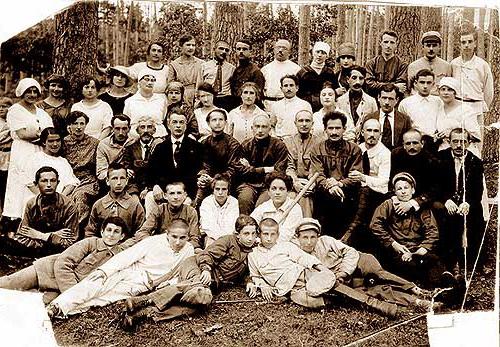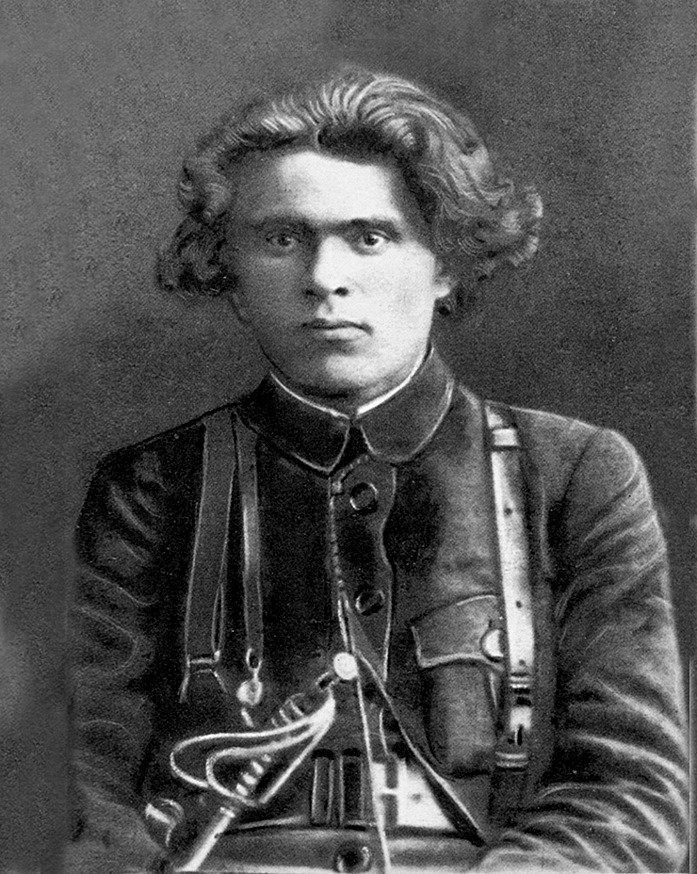6 sentences with a direct speech in English. Indirect speech: features of the transition of various types of sentences
Statements made by a person in a letter are transmitted in two ways: direct or indirect speech. This is characteristic of both Russian and English.
Differences between direct and indirect speech
Direct speech or Direct Speech - the literal transmission of someone’s speech (phrases, sentences) in a letter. Therefore, it is enclosed in quotation marks.
Cyril said, “I’ve never been to London.”
Cyril said: "I have never been to London."
Indirect speech or Indirect or Reported Speech - is not a verbatim transmission of speech. Indirect speech retains content, but can change shape, transmitting a message not exactly, in other words. In this case, quotation marks are not put, and the sentence becomes a subordinate.
Fam said that she had never been to London.
Fam said she had never been to London.
Direct Speech in English
Direct speech in English is somewhat different from Russian in writing: upper quotation marks (“) are put instead of the usual Russian“ Christmas trees ”. Moreover, in English, the dot at the end of the sentence is placed before the quotation marks, like other signs, while in Russian, on the contrary, after the quotation marks.
She answered, “No, I can’t.”
She replied: "No, I can’t."
After the introductory construct, “He said,” “She answered,” “Someone exclaimed,” etc. put a colon or comma.
I said: “I don’t like fruit.”
I said, "I do not like fruits."
Direct speech includes not only affirmative sentences, but also interrogative, exclamatory or incentive ones. Punctuation marks are always stored inside quotation marks.
We exclaimed, “It’s so easy!”
We exclaimed: “It's that simple!”
To transmit direct speech in English, as a rule, the following verbs are used:
Say - talk
Tell - tell
Ask - ask
Answer - answer
Explain - explain
Exclaim - exclaim
Whisper - whisper
Scream - scream
As well as many other verbs, the meaning of which is associated with the transfer of information.
Transformation of direct speech into indirect
Indirect speech is used more often than direct speech, especially in oral speech. But in English, the transformation from direct to indirect is not limited to quotation marks. It is also necessary to observe the rule of coordination of times, as well as a number of other rules. Also in indirect speech parts of a sentence are not separated by a comma.
Personal and possessive pronouns are replaced depending on the context.
Boris said, “We should work.”
Boris said they should work.
He said that they should work.
Indicative pronouns also change:
this - that
these - those
She said to Moris, “Give me this shawl.”
She asked Moris to give her that shawl.
Adverbs of time are replaced by:
today - that day
ago - before
tomorrow - the next day
He said, “I’ll call it off tomorrow.”
He promised to call it off the next day.
If the predicate in the main sentence is in the past tense (which happens most often), the subordinate clause in indirect speech also requires the transition of the predicate in the past tense.
They said, “We are working.”
They said they were working.
Indirect speech
In order to convey the speaker’s speech, that is, to quote him, we use indirect speech.
Example:
My mother says "I want a new dress" - My mother says: "I want a new dress." (direct speech)
My mother says that she wants a new dress - My mother says she wants a new dress. (indirect speech)
Remember that when we transmit indirect speech in the past tense, we follow the rules of the coordination of tenses.
Example: My mother said she wanted a new dress. - My mother said she wants a new dress.
Indirect speech (statements)
The following verbs are used for approval: to explain - to explain, to say - to speak, to notice- to notice, to add- to add, to tell - to tell, to remark- to note, to remind - to remind, to inform - to inform and so on.
Examples: He told that he didn`t know about it- He said that he did not know about it.
Remember the use of the preposition: to say smth to smb- say something to someone. (I said the truth to him- I told him the truth); to tell smb smth - tell someone something (Tell me please about your life- Tell me, please, about your life)
Introductory words are often used in the present tense when:
1) We read aloud, inform: The magazine says that you should work out 3 times a week.
2) We send the message: What does she say? - She says you have to go
3) We talk about what someone often says: They are always telling how they are happy together.
Orders and requests
In this case, we use the infinitive and introductory words: to command- to command, to ask- to ask, to beg / to implore- to beg, to urge- to insist, to order- to order, to tell- to speak and so on.
Questions
General issues
In indirect speech, the direct word order is used to formulate general questions.
Formed by particles if / whethertranslates as Russian particle "Li". Introduced by the words to ask- to ask, to want to know — to want to know, and so on.
Special Issues
For the formation of special issues in indirect speech, the direct word order is also used. Introductory interrogative words: why- why, when- when, which- which and so on.
Share with friends
Everyone probably heard about direct and indirect speech during the lessons of the Russian language. In English, it also exists, and if so, that is, the rules. If you forget a little what it is:
Direct speech is a person’s words, without any changes, are written in quotation marks. Pay attention to the design of direct speech in English:
‘I want to buy a new car’, Said my friend. ( Look, after direct speech, here comes the predicate first, and then the subject: this happens when direct speech precedes the author’s words).
or
My friend said, ‘ I want to buy a new car’. (Here, as you see, the author’s word order is normal)
By the way, read the word order in English sentences. And now we turn to the theory with clear examples and explanations.
Content:
Indirect speech in English is also someone’s words, but not already spoken personally, but transmitted by another person (by the way, rumors are born, someone said, someone didn’t misunderstand, and he went, he went ...: - )). To prevent this from happening to you, you must follow certain rules, especially for times. But more on that later. Read carefully.
Sonya always asks me to help her ...
In indirect speech, we often use the words: answer, reply, tell, suggest, mention, ask, promise and others. The most common are say and tell. It is with these two verbs that confusion often occurs.
When to choose tell , and when say ?
- In direct speech say (to smb.).
I always say (to him), ‘ Be careful!’
- And in an indirect speech, when we mention the person to whom we are addressing, we take tell . For example,
My teacher told me (that) I could finish the work later.
Note: word that in the English version you can safely to release, and the sentence will be correct in the same way. When translated into Russian, this word is still more often present.
- Also tell used in stable expressions such as: tellastorytellthetruthtella lie.
- Say used when we do not name the one to whom direct speech was addressed. For example:
The teacher said I could finish the work later.
Replacing words
When translating direct speech into indirect, we replace the following words:
I ⇒ he / she(depending on context)
My ⇒ his / her(depending on context)
Here ⇒ there
This ⇒ that
These ⇒ those
Now ⇒ then, at that time
Today ⇒ that day
Yesterday ⇒ the day before, the previous day
The day before yesterday ⇒ two days before
Tomorrow ⇒ the next / following day
The day after tomorrow ⇒ two days later
Next year ⇒ the following year
This week ⇒ that week
Last week ⇒ the week before, the previous week
An hour ago ⇒ an hour before / earlier
Bob said: ‘ I "d prefer these cards’⇒ Bob said that he "d prefer those cards.
But you need to remember that all replacements occur within the meaning of a phrase or sentence. It will not be out of place here to turn to the Russian translation of the sentence in order to correctly change the necessary words.
How to translate a direct speech into an indirect one, or a rule of coordination of times
To convey the meaning of what was said by another person, we add introductory part, eg, he (says) said, what... or she (asks) asked about something... etc., i.e. we sort of distance ourselves from the words of another person, and then retell what we heard.
If this the prologue is in the present tense, then from time to time everything is simple: as was in direct speech, so we leave it in indirect.
BUTwhen we use past time, i.e. said / told and other verbs then begins to act time alignment rule , i.e. tense (respectively, the verb) from direct speech is replaced by another. The table below lists the times of direct speech and their analogues in indirect:
| Present Simple ⇒ Past simple | ‘I am happy’ ⇒ He said he was happy. |
| Present continuous ⇒ Past continuous | ‘I am reading’ ⇒ He said he was reading. |
| Present perfect ⇒ Past perfect | ‘I have written’ ⇒ He said he had written. |
| Past simple ⇒ Past perfect | ‘I went to the theater’ ⇒ He said he had gone to the theater. |
| Past perfect ⇒ Past Perfect ( does not change) | ‘I had gone home’ ⇒ He said he had gone home. |
| Future simple ⇒ Future in the past | ‘I will go home’ ⇒ He said he would go home. |
Modal verbs also change:
| Can ⇒ could | ‘I can do it’ ⇒ He said he could do it. |
| May ⇒ might | ‘You may leave’ ⇒ He said she might leave. |
| Must ⇒ had to | ‘I must go home’ ⇒ Sue said she had to go home. |
If modal verbs were already in the form could, ought to, should, would, then they remain in this form.
‘I couldn’t know anything about it’ ⇒ He said he couldn’t know anything about it.
Translation of questions from direct speech to indirect
Any questions in English are translated into indirect speech using verbs askwanttoknowwonder ...
- Translating into indirect speech questions with interrogative words interrogative words remain. And here the rule of the coordination of times also applies.
‘Why is she crying?’ ⇒ He asked why she was crying.
- When translating common questionsin indirect speech, we must add words such as: if / whether. Do not confuse whether and weather !
‘Can you help me?’ ⇒ She asked me if / whether I could help her.
Word order
- When we translate question in indirect speech, it already ceases to be a question, therefore the word order also changes, auxiliary verbs are not required (note that exactly auxiliary, for example, did, and those that were originally part of the predicate, they, of course, persist).
‘When did you come home?’ ⇒ His mother wanted to know when he had come . (We see that after the interrogative word the word order changes to the usual one, as in the sentence, and of course now the auxiliary verb is not required. Apart from this, we also observe here the timing)
- Incentive offers also readily transformed into indirect speech, namely by turning a verb into an infinitive with a particle to. Wherein tell means "Command", ask - « ask". Verbs are also possible. order, forbid, allow and etc.
‘Be careful!’ ⇒ Her mother told the child to be careful.
Negative form is formed through not.
‘Please don’t call me late’ ⇒ She asked him not to call her late.
Here is such a theory that at first glance seems tricky and incomprehensible. But I think that after doing a couple of exercises, everything will fall into place. Therefore, I suggest you go to practice right now!
Everyone probably heard about such grammatical terms as “direct and indirect speech”. In Russian, it is not difficult for us to translate direct speech into indirect. “Who is this girl by the window?” - “She is my sister.” This is a direct speech, i.e. dialogue of two people. In an indirect speech, it looks like this: "Sasha asked me who this girl is at the window, and I replied that this is my sister."
How to translate direct speech into indirect
We translate direct speech in English without difficulty, but how can we turn it into an indirect one? There are certain rules for this. As usual, such sentences begin with the main sentence, for example, “he says, she said, they asked me, she asked, etc.”, followed by the subordinate clause.
Google shortcode
He says she got sick
In this case, “he says” - this is the main sentence, and “that she got sick” - the relative clause. There are no particular difficulties with translating narrative sentences into indirect speech: the author’s words become the main sentence, and direct speech becomes the subordinate, which is introduced by the union that : He says that she has fallen ill.
| Mary says: “Yesterday I saw a new film with Brad Pitt” | Mary says that yesterday she saw a new film with Brad Pitt. |
| Mr. Smith says: “I like traveling. I have been to many countries ” | Mr. Smith says that he likes traveling and he has been to many countries. |
Question in indirect speech
When we translate interrogative sentences into indirect speech, it is necessary to take into account some nuances.
1. The word order in the English indirect question is direct , that is, as in the affirmative sentence:
- Sentences with let’s are translated into indirect speech in two ways: 1) using the verb suggest- suggest and union that + should :
- Let’s watch a new film on TV. - He suggested that we should watch a new film on TV. - Let's see a new movie on TV. - He offered to watch a new movie on TV.
Let’s go to the beach - She suggested that we should go to the beach. - Let's go to the beach. - She offered to go to the beach.
2) using the verb suggest- suggest + ING verb form
In order to master indirect speech, it is not enough just to know the rules. It is necessary to practice the acquired knowledge in order to consolidate the result.
That is why most people use various games to make students easy and interesting.
Reported speech is a topic that needs additional attention. First, you need to know that when we want to express the thoughts of another person in English, we need to “shift” the time itself one step back. So, if the sentence is in Present Simple, we need to use Past Simple. Take a look at the table below:
But there are those that remain unchanged:
| would | would |
| could | could |
| might | might |
| should | should |
| ought to | ought to |
Now that you have already mastered all the intricacies of Reported Speech, we offer to play a game called What did you say?
What is needed for this?
First of all, we need a company of friends who will be ready to accept the rules of the game. They are simple: the first person speaks the phrase, the second asks what he said, the first, using indirect speech, rearranges the sentence. It looks something like this:
Do you like watching TV?
- What did you say?
- I asked if you liked watching TV?
- Yes, I do.
- What’s your favorite TV channel?
Below we will offer a number of questions that you can use for the game:
- Do you like going to the cinema?
- What are you doing at the weekend?
- Have you ever sung in public?
- How long have been learning English?
- What did you do last weekend?
- What were you doing yesterday at 5.50pm?
- Do you think you will get married?
- Are you going to learn a new language?
- Do you wish you were famous?
- Who is your favorite actor?
- What are you doing this evening?
- Have you ever fallen in love?
- How long have you been living here?
- Did you watch a good movie last weekend?
- Were you watching TV yesterday at 7.45pm?
- Will you have children?
- What are you going to do next Monday?
- Where do you like spending your holidays?
You can come up with your own questions and diversify them using all the times of the English language. It will be not only interesting, but also useful. It is safe to say that after such a game the theme “Reported Speech” will be perfectly mastered.
Remember the time offset:
| Present Simple | Past simple |
| Present continuous | Past continuous |
| Past continuous | Past perfect continuous |
| Present Perfect Continuous | Past perfect continuous |
| Past perfect continuous | Past perfect continuous |
| Past simple | Past perfect |
| Present perfect | Past perfect |
| Past perfect | Past perfect |
| Future simple | Conditional |
| Will - will not | Would - wouldn’t |
Do not forget to change the following words:
| Today | That day |
| Now | Then |
| Tonight | That night |
| Last day | The day before / the previous day |
| yesterday | The day before |
| Ago | before |
| Last week | The week before |
| Next year | The following year |
| Tomorrow | The next day / the following day |
| Here | There |
| This | That |
| These | Those |
Learn and don't be afraid to make mistakes in speech. As soon as you start talking, all the mistakes will fade into the background. Remember that conversation is the first step to a fluent speech.






